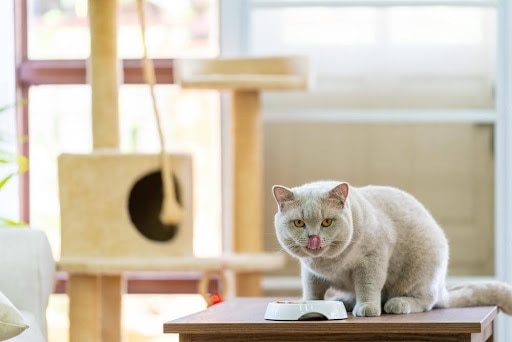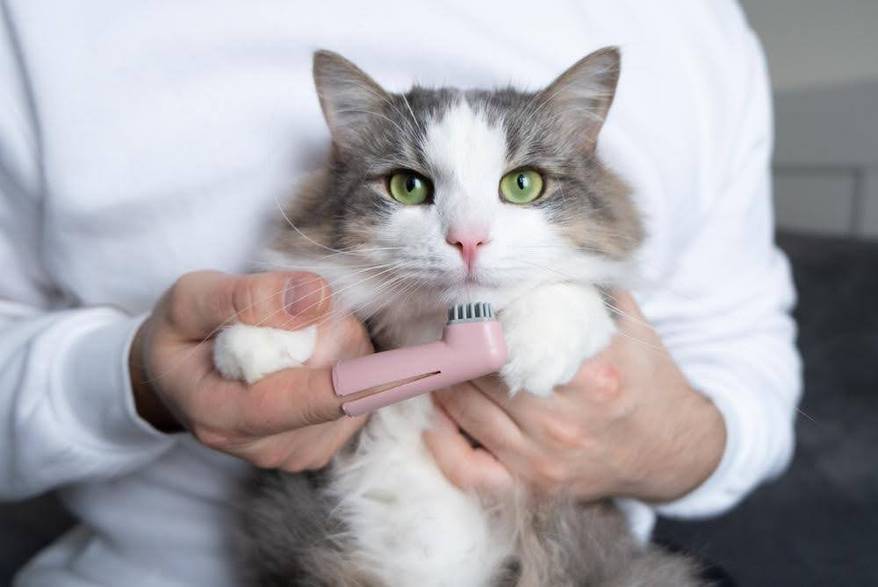
-
Find the right food for your petTake this quiz to see which food may be the best for your furry friend.Find the right food for your petTake this quiz to see which food may be the best for your furry friend.Featured products
 Adult Chicken & Barley Recipe Dog Food
Adult Chicken & Barley Recipe Dog FoodSupports lean muscle and beautiful coat for adult dogs
Shop Now Hill's Science Diet Adult Chicken & Beef Entrée Dog Food
Hill's Science Diet Adult Chicken & Beef Entrée Dog FoodChicken & Beef Entrée in a delicious loaf with complete & balanced nutrition to help keep adult dogs active and healthy
Shop Now Adult Large Breed Chicken & Barley Recipe Dog Food
Adult Large Breed Chicken & Barley Recipe Dog FoodSupports healthy joints, lean muscle, and beautiful coat for large breed dogs
Shop NowFeatured products Adult 7+ Indoor Chicken Recipe Cat Food
Adult 7+ Indoor Chicken Recipe Cat FoodSupports energy level and beautiful fur in mature indoor cats
Shop Now Senior Vitality Adult 7+ Tuna & Vegetables Stew
Senior Vitality Adult 7+ Tuna & Vegetables StewImproves Everyday Ability to Get Up & Go
Shop Now Adult Turkey & Liver Entrée Cat Food
Adult Turkey & Liver Entrée Cat FoodPrecisely balanced nutrition with the delicious taste of minced turkey & liver to help fuel the energy needs of cats during the prime of their life
Shop Now -
Dog
- Dog Tips & Articles
-
Health Category
- Weight
- Food & Environmental Sensitivities
- Urinary
- Digestive
- Joint
- Kidney
-
Life Stage
- Puppy Nutrition
- Adult Nutrition
- Senior Nutrition
Cat- Cat Tips & Articles
-
Health Category
- Weight
- Skin & Food Sensitivities
- Urinary
- Digestive
- Kidney
-
Life Stage
- Kitten Nutrition
- Adult Nutrition
Featured articles How to Properly Mix Wet & Dry Pet Foods
How to Properly Mix Wet & Dry Pet FoodsAn Orange cat eating from a bowl filled with mixed food
Read More What Is Littermate Syndrome? Pet Adoption Guide
What Is Littermate Syndrome? Pet Adoption GuideLearn more about littermate syndrome in dogs and cats and how to successfully navigate adoption and early socialization processes.
Read More The Science Behind Our Love for Pets
The Science Behind Our Love for PetsLearn the scientific reasons why we have such strong connections with our pets, and what science says about the love between humans and our furry friends.
Read More -


More and more cat lovers understand how important dental health is to their cats' overall health, well-being and longevity. At the same time, people are also learning about the health benefits of canned food due to its ability to promote healthy hydration and potential to help support weight management. But if you've done any online research, you might wonder whether wet food and dental health are at odds. Is wet food bad for cats' teeth? Does wet food cause dental problems in cats? What's the truth?
It's time to address this concern, debunk common misconceptions surrounding dental health and canned food, and learn how to confidently care for your cat's pearly whites.

What Should You Know About Wet Cat Food?
Complete and balanced wet cat food, also known as canned food, typically contains all essential nutrients. Canned food comes in different forms, including chunky stews with cubed ingredients, shredded meat in gravy and smoothly blended pates.
The main difference between canned and dry food is that dry food generally contains higher levels of carbohydrates and lower levels of moisture. Dry cat food also has a less distinct aroma and a longer shelf life, as wet food is perishable once opened.
Is Wet Food Bad for Cats' Teeth?
There's a broad misconception that feeding your cat only canned food harms their dental health. This is likely due to the persistent belief that feeding cats dry food essentially "brushes" their teeth as they chew. However, unless a food is formulated to help remove plaque and tartar, this is generally an inaccurate thought.
Now, some dry cat foods are designed to support cats' oral health. These special formulas may even be clinically proven to reduce plaque and tartar buildup up to the gumline. However, no food — wet or dry — replaces professional cleanings. Neither food can clean below the gumline, reach dental pockets where bacteria and infections can lurk undetected or address existing or developing gum disease.
Does Wet Food Cause Dental Problems in Cats?
The simplest answer is that canned food doesn't damage your cat's teeth as long as they receive routine dental care as recommended by their vet. In fact, complete and balanced wet foods contain important minerals, like calcium and phosphorus, that help maintain tooth health.
However, either form of food, wet or dry, can lead to dental problems in cats without proper dental care. So, follow your veterinarian's recommendations about your cat's dental health, including routine at-home dental care and professional in-office cleanings.
When Should You Consider a Hybrid Approach?
In general, many cats benefit from eating a combination of canned and dry food. In kittens, offering an array of food textures and shapes helps avoid strong food preferences that can cause picky behavior later in life. Your vet may recommend a dry- or wet-food-only approach depending on your cat's health, preferences and lifestyle, but most healthy adult cats thrive on mixed feeding.


Tasty Tips

How to Promote Good Dental Health in Cats
You can support your cat's dental health with professional and at-home dental care. If practiced regularly, the following actions will promote healthy teeth and gums in your cat:
- Aim to brush your cat's teeth at least every two to three days at home.
- Take your cat to a licensed veterinarian for annual oral exams.
- Follow your vet's recommendations for professional dental cleanings, which are performed under anesthesia to clean below the gumline
- Look for signs of dental disease (bad breath, difficulty eating, dropping food, teeth chattering, etc.), and take your cat to the vet if you have any concerns
- Offer your cat dental treats designed to help reduce plaque and tartar accumulation.
- Ask your vet about cat food specially formulated to help reduce plaque and tartar buildup up to the gumline
Taking a Mindful Approach to Your Cat's Total Health
Feeding your cat a complete and balanced canned food can be a wonderful way to support their overall health. While wet food won't help remove plaque, it won't damage your cat's teeth any more than dry food, and you can support their dental health in other ways. So, take a holistic approach that considers their nutritional needs and overall well-being. And remember: You're not alone. Your veterinarian is your best resource for information on your cat's health, and they can point you to a food that helps your kitty thrive. See what they recommend at your next visit!


Dr. Sarah Wooten graduated from UC Davis School of Veterinary Medicine in 2002. A member of the American Society of Veterinary Journalists, Dr. Wooten divides her professional time between small animal practice in Greeley, Colorado, public speaking on associate issues, leadership, and client communication, and writing. She enjoys camping with her family, skiing, SCUBA, and participating in triathlons.
Related products

Supports energy level and beautiful fur in mature indoor cats

Improves Everyday Ability to Get Up & Go

Delectable chunks with tender chicken smothered in a rich gravy

Precisely balanced nutrition with the delicious taste of minced turkey & liver to help fuel the energy needs of cats during the prime of their life
Related articles

Discover which cat toys games your feline friend might like, and how they are great sources of exercise. Explore our library of articles to learn more.

Discover how to train your cat, starting with very basic first steps that both reward good behavior and discourage the bad.

Learn how to litter train a kitten with this guide to potty training, including when to start litter training kittens and troubleshooting tips.

When you adopt a cat, you don't just gain a best friend; you also save her life. Here's why getting a cat from a local animal shelter makes so much sense.

Put your cat on a diet without them knowing
Our low calorie formula helps you control your cat's weight. It's packed with high-quality protein for building lean muscles, and made with purposeful ingredients for a flavorful, nutritious meal. Clinically proven antioxidants, Vitamin C+E, help promote a healthy immune system.
Put your cat on a diet without them knowing
Our low calorie formula helps you control your cat's weight. It's packed with high-quality protein for building lean muscles, and made with purposeful ingredients for a flavorful, nutritious meal. Clinically proven antioxidants, Vitamin C+E, help promote a healthy immune system.

